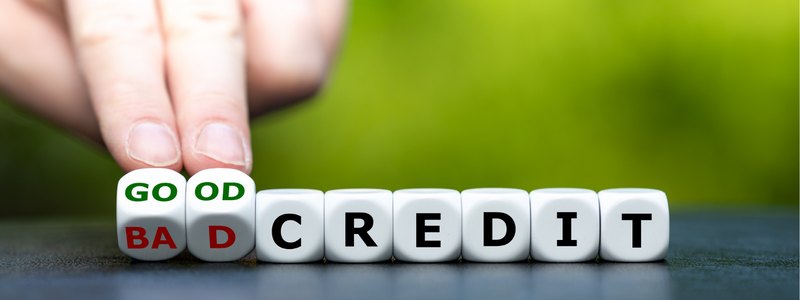
Bad credit bites. A low score can stick you with high-interest rates, assuming you get approved for additional credit at all. It can also make it difficult for you to find a decent place to live, affect your ability to get a job and limit your opportunities for advancement. If you live with bad credit, you know this all too well. The good news is, bad credit doesn’t have to negatively impact your life forever. How long, then, must you wait to start improving your bad credit score? The answer depends on a number of factors, including the type of negative marks on your history, the extent of the damage and your future spending behavior.
The Longevity of Negative Information
Generally speaking, negative credit information remains on a person’s credit report for seven years. However, there are exceptions to this rule. For instance, some bankruptcies can affect consumers’ scores for as long as 10 years. Hard inquiries stay on your report for two years. Almost every other type of information, however, including charged-off accounts, late payments, repossessions, foreclosures and civil claims judgments, remains on your credit report for seven years.
Steps To Improve Your Score Today
You don’t have to wait 10, seven or even two years to begin improving your credit score. Though negative information will not officially fall off your report right away, the spending habits you engage in going forward can help to counteract it and boost your score as much as possible until the allotted time frame is up. Below are a few steps you can take to improve your credit score quickly.
Make Timely Payments
Payment history is the most significant credit scoring factor, accounting for 35% of your score. If you have open accounts, continue to make payments toward them on time. Delinquent payments, even if they’re only a few days late, can ding your score by several points. A 30-day delinquency can hurt your score by as much as a 90- to 110-point decrease.
If you already missed several payments, you need to buckle down and bring them to current. Once they’re current, keep them there. Not only will this help your score but will also eliminate late fees and reduce your interest payments.
Pay Down Debt
Credit utilization is the second biggest factor that influences your credit score, accounting for 30%. Credit utilization refers to your debt-to-credit limit ratio. For instance, say you have a total credit limit of $30,000. You owe $15,000. Your credit utilization rate is 50%. An ideal credit utilization rate is 30%, though the lower you can keep yours, the better. To bring your rate down, pay as much toward your debt as possible each month.
Keep Accounts Open
One of the biggest mistakes consumers make when trying to boost their credit scores is to close accounts
—especially unused ones. Unused accounts are great for your credit utilization rate. So long as they’re not costing you money, keep them open. Closing accounts without drastically reducing your existing balance may lower your score.
Open New Accounts (Sparingly!)
In addition to keeping old accounts open, you may consider applying for new accounts. If approved, the new line of credit can decrease your credit utilization rate. However, keep hard queries to a minimum, as they can impact your score by between five and 10 points.
Be Smart About Your Credit Applications
If you do plan to apply for new credit, be smart in how you do so. For instance, if you have significant credit card debt, consider applying for a consolidation loan. Bad credit loans can help you in several ways:
- Decrease your credit utilization rate.
- Add to your credit mix (10% of your score).
- Reduce your interest payments.
- Make your monthly payments more manageable.
- Pay off your debt faster.
These benefits can not only help you increase your score but also help you to improve your finances. However, be careful about taking out more debt, as if it becomes unmanageable, you may end up in the same situation in which you started.
Dispute Inaccuracies On Your Report
Even minor inaccuracies on your credit report can significantly hurt your score. Review your report for incorrect or missing information. You may find that a lender reported an account as delinquent when, in fact, you brought it up to current months ago. If you filed for bankruptcy and it doesn’t reflect on your report, all those closed accounts will show as “delinquent” and will continue to ding your score. If you applied for and were approved for new credit, make sure the new limit reflects on your report. When it comes to your credit report, the small details matter, so be sure they’re all accounted for.
Don’t let bad credit bring you down. Use the above advice to begin improving your credit score today. And, when you’re ready, search for online loans for bad credit via our personal loan search engine.



